More-than-human democracy: Remembering that we all live in the same garden
How our relationships with the natural world shape our relationships with each other and vice versa - and what this means for governance and democracy
I’ve decided to move my occasional posts from Medium over to Substack. This first post is a re-publication of my recent article about “more-than-human” democracy. (This is the only post I’ll republish, as a way to get started). The tempo here will be sporadic, every few weeks or months, and the content slightly more personal. My organisation, DemocracyNext, has a separate newsletter. If you’d like to receive my future writings, please subscribe.
In a previous post, I shared a little bit about my exchange with former President Obama about Citizens’ Assemblies and accelerating change to a next democratic paradigm.
This note is more personal, a first draft hand-written after a few days in solitude in Greece this past June, typed and later updated after further reflection, references, and experiences. These thoughts were initially sparked by the books that I read that weekend right after meeting President Obama — Landlines and Mountains of the Mind — weaving in some related issues on land ownership, place, belonging, community, and democracy. These ideas are still evolving, and will probably change with feedback and further questioning — which I invite. A next few posts will explore the evolution of these ideas in response to the reflections and questions I’ve been receiving, as well as another dimension of more-than-human democracy: our relationships with AI.
The first book that initially prompted the ink to flow furiously on the page was Landlines by Raynor Winn. What a powerful story, that makes me want to go on a really long walking journey. Her and her husband Moth walked from Cape Wrath — or almost, from Sheigra, in north-western Scotland — all the way to their home in Cornwall over the course of around four months. It is both a reflection on the walk itself — the wondrous landscapes, rays of light emerging after days of endless rain, boulders crossed, blisters and sore feet, broken stoves, strangers offering tea and many other joys and challenges along the way — as well as about the experience of reconnecting with the living world, with the land, the wild places and their reminder that we are but a small part of this wondrous world, that we don’t own it, that we rather live in relationship with it — the mountains, rivers, moss, lichens, deer, swallows, kingfishers, butterflies, bees, oaks, birches, orchids, ants…
I read Landlines after I finished Robert Macfarlane’s Mountains of the Mind. Where he also writes about why mountains in particular have a hold over us. How that has changed over the centuries, why they have the ability to quicken our sense of wonder, but also open us up to new landscapes within ourselves. It was this book that I shared with my group of fellow Obama Leaders during our opening session of our meeting in Athens, where we each had to describe one object that encompasses what we feel we are bringing to this group. In all honesty, I had no idea how to approach that question at first. But the idea of bringing my love of mountains into this leadership course felt right. It also reminded me how I highlighted my love of hiking during my introduction on Day 1, so it felt like closing a circle I had opened. I stress it because while it feels obvious to me, it clearly wasn’t to everyone. “Why do you talk about your love of nature so much?”, I was asked by a fellow Leader afterwards.
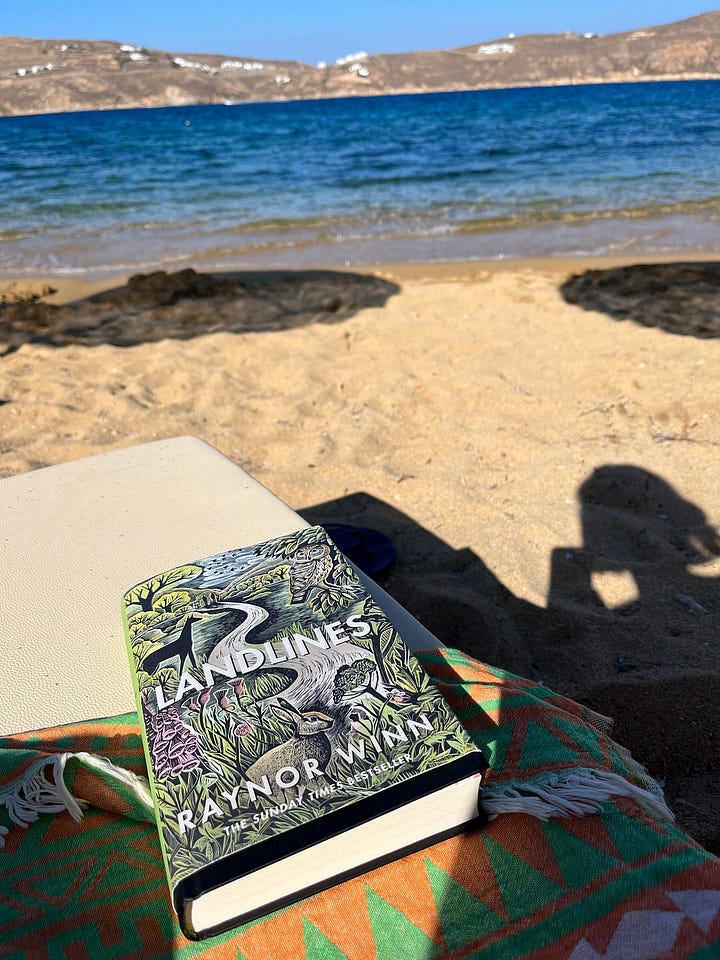
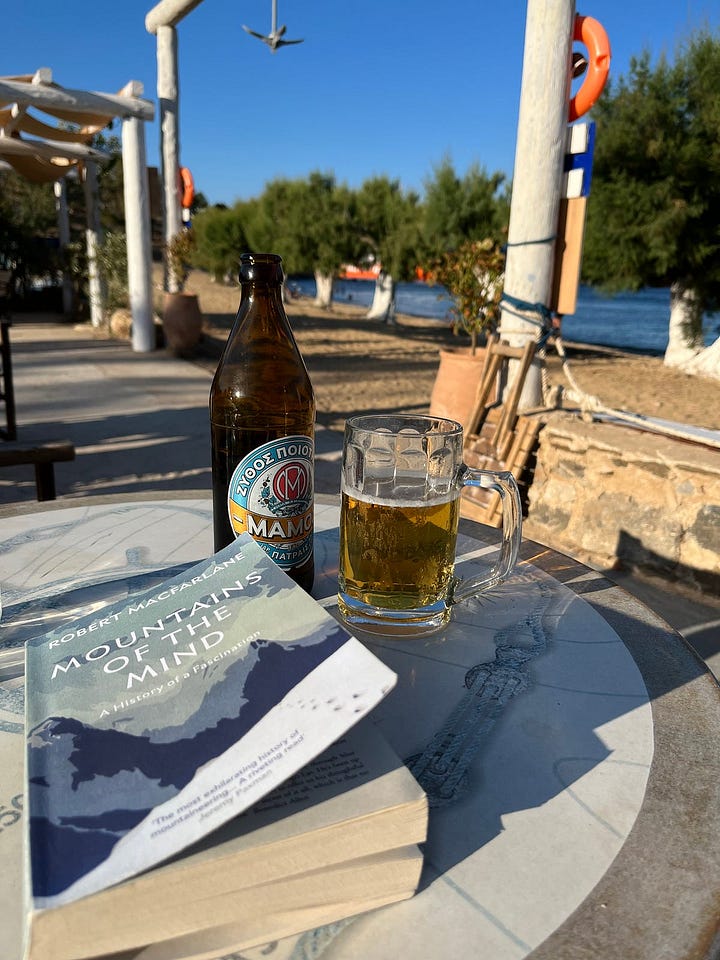
This is my attempt to articulate why I see such a strong connection between my love of the natural world and my work on democracy. About why we cannot separate the importance of our relationship with the world, ourselves, and others.
It keeps us grounded, literally. Reminds us what really matters in life. And the natural world also has immense things to teach us if we pay attention to it. For instance, the network of networks that are mycelium — connections invisible to the human eye but vital sources of communication and life between the trees, plants, insects, and animals that make a healthy forest ecosystem. The secret behind the Wood Wide Web. There is great wisdom in that for thinking about how we organise ourselves as people and organisations. Or another example being queer lichen, showing us that reproduction and queer relationships are present in the natural world, reminding us that we live in social constructs and giving us strength to remember we are all weird and wonderful creatures. If we pay attention, the learnings from the living world are endless.
As Annie Murphy Paul argues compellingly in The Extended Mind, our minds are also so much more than just our brain. Our minds are embodied, social, and situated — the movements and feelings in our bodies, the places in which we are, and the minds of others around us are all necessary for us to exist. We need each other and we need the trees and oceans and mountains to think, breathe, feel, and be alive.
Both books also prompted reflections on borders and connections and belonging. There were many references, particularly in Landlines, to conversations had and overheard about Brexit and Scottish independence, about people moving from foreign lands and feeling connected to place by intimate time spent in the moors, the glens, the places that made them feel welcome and connected, familiar.
Walking to the summit of Black Hill along the Pennine Way, Raynor and Moth exchange with a man heading down the hill as they head up to camp for the night.
“How are you finding my hills?” he asks them.
“Your hills?”
“I know what you’re thinking, how can a man whose roots are obviously elsewhere be calling the moors his hills? It’s because I love this land with a passion. I walk up here all the time. I came to this country when I was young; now I’m not so young. Even when I barely spoke the language and felt like an outsider, the hills welcomed me, they took me in and they became my friends. I know them so well, from Dale to Hebden Bridge, these hills are my home. Even now, when I am part of the community, when my family are born here and their lives are here, I never forget where I really belong. Here among my old friends the hills.” (p. 225).
The couple encounters people with nostalgia for their places prior to the building of big roads and highways, before monoculture of maize and other crops, before big nuclear plants, over-tourism, and consumption of the places to be merely ticked off a list.
The story brings to light how there are different walkers — those counting steps and kms and days, concerned primarily about performance. And others just walking, taking in the landscapes, feeling at one with the world, and stopping when their body tells them to stop for the day. There are parallels in this to how we approach our work and our lives. Counting the reports, racing to meetings, measuring social media likes. Or taking the meandering paths of spontaneous conversation, moments of rest and listening to what our bodies are telling us. Making space intentionally for joy and beauty.
Moth has an epiphany near the end of the 1,000 mile journey. Until then, he had had a need to go to the top of the moors to feel like he’d reached a peak and feel truly in a landscape. But no longer: “I don’t have to go to the top of the moors to touch the wilderness. It’s already here, imprinted in me, inside me.” How many of us are racing, pushing ourselves to the peak when our bodies are telling us to take the slower coastal path?
For a long time, I was one of those walkers more concerned with the distances covered, the altitude climbed, reaching the peak for the sake of it. But who are we really competing with, and what do we ‘win’ by going so fast that we don’t notice the sound of the leaves rustling in the wind, the butterflies flitting amidst the orchids, or the finches perched in the trees? Is it really worth the extra effort to the peak when it’s surrounded by mist and the view is sheltered? Why do we walk?
A mixture of reflection prompted by these various reads, and the experience of finding solace in the mountains during a time of personal crisis have led me to evolve my own practice and perception. Nan Shepherd’s elegy to the Cairngorms — The Living Mountain — poetically reminds us how the mountains are alive, how they have an inside and it’s possible to be in the mountain, not just on it. I feel like I’ve come to finally understand what she means by this. Of the senses that get awoken when we attune to them, bringing us back to life:
“How can I number the worlds to which the eye gives me entry? — the world of light, of colour, of shape, of shadow: of mathematical precision in the snowflake, the ice formation, the quartz crystal, the patterns of stamen and petal: of rhythm in the fluid curve and plunging line of the mountain faces…
It is, as with all creation, matter impregnated with mind: but the resultant issue is a living spirit, a glow in the consciousness, that perishes when the glow is dead. It is something snatched from non-being, that shadow which creeps in on us continuously and can be held off by continuous creative act. So, simply to look on anything, such as a mountain, with the love that penetrates to its essence, is to widen the domain of being in the vastness of non-being…
The whole skin has this delightful sensitivity; it feels the sun, it feels the wind running inside one’s garment, it feels water closing on it as one slips under — the catch in the breath, like a wave held back, the glow that releases one’s entire cosmos, running to the ends of the body as the spent wave runs out upon the sand. This plunge into the cold water of a mountain pool seems for a brief moment to disintegrate the very self; it is not to be borne: one is lost: stricken: annihilated. Then life pours back.” (p. 101–104).
In a similar vein, Frédéric Gros articulates why walking without the narcissistic gratification of competition and counting brings forth something fuller — “the simple feeling of being alive is enough to produce the highest sort of joy, of pure intensity and absolute modesty: the joy of living, of feeling oneself here, tasting one’s own presence in harmony with the world’s” (p. 119, A Philosophy of Walking). Both Shepherd and Gros talk about this state of being and the serenity it inspires, as something detached from the obligation of materiality, something that requires an alternation of rest and movement, and is intentionally about creating the space for slowness.
In our fast-paced world, where efficiency and speed and scale are so often goals, the intentional slowness of a movement that brings us to a pace that enables us to pay attention, to notice details about the world, and about ourselves — our sensations, our emotions, our thoughts — is nourishing for the soul and our sense of being in relation with the world.
Perhaps there is something in the parallel between this and my interest in the democratic processes that, in some ways, slow things down by opening up the spaces for us to notice, to be attentive, to listen, to be heard. Processes that are not about ‘winning’, but about understanding.
How can we grapple with the complexity of the issues we face if we don’t allow ourselves the time and space to be with that complexity and explore its intricate interweaving elements?
Time is a recurring theme in the books mentioned, and in my own wider reflections.
How our relationship to it also changes when we are walking, facing adventures and challenges, outside all day, following natural rhythms of light and weather, when we walk long enough to see the seasons changing. But also when we realise the many millennia that have come before us — the deep time ingrained in the landscapes. The former glaciers that have shaped Scotland. The recent movements deep in the earth that created the Alps and Himalayas and other mountain chains. As Macfarlane writes:
“Through the spectacle of geology, terra firma becomes terra mobilis, and we are forced to reconsider our beliefs of what is solid and what is not… geology makes explicit challenges to our understanding of time. It giddies the sense of here-and-now…
Contemplating the immensities of deep time, you face, in a way that is both exquisite and horrifying, the total collapse of your present, compacted to nothingness by the pressures of pasts and futures too extensive to envisage….
Yet there is something curiously exhilarating about the contemplation of deep time. True, you learn yourself to be a blip in the larger projects of the universe. But you are also rewarded with the realisation that you do exist — as unlikely as it may seem, you do exist.” (p. 44–45)
When I think about how all of this connects to my work on how we get to another democracy, it feels obvious that the change cannot just be about the processes and structures and institutions. Our relationships with the natural world shape our relationships between each other too. “We all live in the same garden, but rather than revel in that and share the beauty of it, all we can do is argue over who owns the bees” (Landlines, p. 253). Winn reflects after hearing a lady tell off a family who had accidentally wandered into her garden, annoyed that they were near her beehives.
How can we find ways to remember that we all live in the same garden?
If we think about our relationship with the land, we realise how in many places it has come to be one of ownership and domination rather than one of shared co-existence, stewardship, and caring. This then extends to schemas about thinking about property and borders that are inward-looking and exclusive rather than outward-looking and inclusive.
Why the word ‘citizen’, which at its roots has a more inclusive meaning of living in a place together, has come to have a narrow and exclusionary connotation to the point where many don’t even want to say it anymore, while others do so with an intention of signalling to their in-group. President Obama also responded to my question about Citizens’ Assemblies with the language of People’s Assemblies. I’ve been using the term ‘citizen’ intentionally for many years with this wider, expansive meaning of the term. But sometimes I waver. Is it more simple and inclusive to say ‘people’ instead?
Maybe that actually goes hand in hand with this view of us as being in relation to the land, the wilderness. ‘Citizen’ also has roots in a turning point when we started to think about ‘civilisation’ as an epitome of progress. These past few years, from my own experience spending more and more time hiking, to reading books like David Abram’s Spell of the Sensuous (about perception, embodiment, and how language shapes our relationship with the more-than-human world) have made me think that this was rather a turning point in a negative direction, away from a close connection with the land and the natural world, the beginning of treating people as more special than the plants and animals we coexist with. But without them, we literally would not be able to survive. Everything is interconnected. Even our cognition, beyond being embodied and social, is also connected to the natural world.
Despite those considerations, I still have a preference for the word ‘citizen’ and use it intentionally, as I think it has in some ways become hijacked with an exclusionary and narrow meaning, weaponised to exclude. Citizens’ Assemblies, where people are randomly selected and reflecting a microcosm of society’s diversity, have been showing another way – that we could have a more expansive meaning and conception of what it is to citizen. While we scoff at Aristotle’s time, when the privileges of citizenship were limited to men who were not slaves, the question of who has political and civic rights today is still hotly debated, and varies from place to place. It has become largely the norm that women have the right to vote, for instance, but in most places, this right is denied to migrants and to children.
In many cases, any resident of a place can be eligible to become a Citizens’ Assembly Member, regardless of birth place or passport, as long as they inhabit that place together. There have also been a few examples of Children’s Assemblies in Scotland and in Ireland, showing a meaningful way to involve young people in democratic and deliberative decision making. These examples question through action what we mean by citizenship.
If we imagine a democracy, therefore, where Citizens’ Assemblies (in plural, as an ecosystem) exist instead of — or, at the very least, in addition to — elected parliaments or councils, where everybody living in a place has the equal right to be selected as an Assembly Member, and those Members rotate and change over time, this completely changes the meaning of ‘citizen’, making the expansive definition the dominant (only?) one. Making it a verb, not just a noun, as Baratunde Thurston’s How to Citizen work has also been pointing to, as well as Jon Alexander’s extensive and inspiring work to help open up this imagination.
I’m reminded of the start of Winn’s book, where she points out how Scotland’s 2003 Land Reform Act gives everyone the statutory right to pass over the land, basically enshrining the right to wild camping, and shaping our relationship to the wild spaces and places that cannot be privately owned (though this land is nonetheless still owned by somebody — the state — and therefore it doesn’t preclude such rules changing in the future). In the UK last year, the Police, Crime, Sentencing, and Courts Bill passed through parliament, criminalising trespassing and making wild camping — “unauthorised encampments” — illegal. An ancient way of using the land lost. Even the language used to title these bills is telling. It provokes in me a deep and visceral feeling of outrage.
One that fuels my drive to change the system to make these decisions in the first place. We’ve come to call our parliaments and elections democratic, trying to export this model around the world. Reducing our options to choosing a different politician or party every four or five years. As though that will fundamentally change the incentives for these decisions in a systemic or structural way.
Whether the question is about land use, or AI, or labour markets, biodiversity, housing, or any number of other issues, we need to find a different way beyond elections to make sure that people affected by these issues — meaning all of us — are able to have a meaningful say in shaping them. A way that reminds us we are all connected in one way or another, and connected with the wild earth we inhabit, and we need each other to be doing well to be at our best too.
How do we get to a system that centres the being in relationship, recognises that anybody living in a place should have an equal right to having decision-making power — regardless of their wealth or education or property ownership — and that we need to systematically consider the impacts of a decision on the biodiversity and health of that place as well?
All of these questions raise the even bigger questions of “where do we even mean by a place, and therefore who are the people we mean by the community?”
It puts into question in a different way the narrow definition of citizen. You may live somewhere and not hold the passport of that place — for various reasons. As a British friend in Greece, the “birthplace” of the Western conception of democracy, explained to me: he and his partner have lived there for eight years, yet their son who was born there doesn’t have the right to be a Greek citizen. Rights by birth or by blood vary from place to place, and this is an ongoing and long-lasting debate in many ways.
I still get stuck on thinking about borders of some sort though when figuring out what is the pool of people from which a sortition (lottery) for a Citizens’ Assembly takes place? With today’s rules and conceptions, “France”, “Paris” etc. make sense. But if we go back to starting with the issues, that logic falls apart. How could we talk about land use and housing in a way that doesn’t take into account the interrelationship with all the suburbs of Paris and the green spaces within and around it? Winn’s reflections walking the borders between Scotland and England and later Wales and England highlights the ridiculous nature of what are in the end liminal spaces as a line was drawn somewhere. I initially wrote “as a line had to be drawn somewhere” — but did it really?
At the same time, there is clearly some need for some sort of invisible lines, as the whole world’s population cannot be involved in every decision. At what point does one community start and another end though? For different types of decisions, we have different dominant identities. The idea of villages/towns/cities and regions makes some sense. I struggle most with nation states. Some issues, like AI and climate emergency, also have planetary scale implications. But again, the nation state lens of decision making at that level that we know through the UN and other international organisations also fails to make sense today. What the alternative looks like is not obvious, but merits serious exploration.
I have recently moved to Marseille and have been spending more time there and reading about its history. As a place that has always looked out more to the seas than inland, shaped by its geography on the coast surrounded by mountains. When you’re there you feel more connected to the sea and the Mediterranean than you are to Paris. It’s no wonder that Marseille remained independent for so long — into the 1800s. It’s this connection to the sea and the mountains and its independent spirit that have drawn me here. Something animating these deeper enquiries about democracy, relationships with people and the natural world, power, land, property, independence and interdependence, and how we get to another kind of future.
These are some of the questions that I’m holding at the moment. I don’t have all the answers, or a clear sense of my own views on all of them — for example about the borders, citizens, and community definition dilemma. But I have the feeling that some new considerations are about to emerge… perhaps a paradigm of “citizen-led” democracy is not even the best framing for the wider considerations that are in play.
How do we get to a democracy where we live in a harmonious relationship with the planet as well as with each other? Do we need to question and redefine accepted notions of ‘citizenship’ and ‘democracy’ in order to do so?
Many thanks to my friends and colleagues who took the time to read an earlier draft, sharing what resonated and questions it raised for them, and giving me insightful feedback: Jon Alexander; Ieva Cesnulaityte; Wes Chow; Nicole Curato; Ansel Herz; Brynn Higgins-Stirrup; Ashley Kelleher; Peter MacLeod; Andy Philp; Elsa Rambaud; Robbie Stamp, and David Van Reybrouck.
Most of their reflections and questions gave me a desire to dig even deeper and open related threads of enquiry related to ideas in here — about the rights of elements in the living world like rivers and mountains, and whether this makes sense or not, about property and public goods and rules, about how the language we use shapes our perceptions and relationships, and about the relationship between the human mind, cognition, and materiality — which I decided to continue exploring rather than elaborate on further here.
Part of the pleasure of exchange has been receiving suggestions for further reading, so I am passing these on to the wider world as well:
Henry David Thorough’s essay “Walking” and Walden [I’d read these a long while ago, so was a nice reminder]
Lambros Malafouris on the extended mind in the context of archeology, knowledge, and drawing [wonderful new discovery and entry point into related fields of enquiry]
Baptiste Morizot’s work on the relationship between walking, animal tracking, hunting, and being in the world [I am also reading his book L’Inexploré at the moment, which I would recommend]
Christopher Alexander’s Timeless Way of Building, A Pattern Language, and Nature of Order on the spatial aspects of politics [have seen A Pattern Language referenced many, many times — this may finally be the moment to get a copy! The Nature of Order appeals to me in particular]
F. David Peat’s Blackfoot Physics [nice to see a book I had sent to someone make its way back to me in a reflection about how our relationships with a place changes once there are maps of it, related to how we view learning and knowledge]
Robert M. Pirsig’s Zen and the Art of Motorcycle Maintenance: An Inquiry into Values [now on my reading list]
Jessica Prendergast: “Liminal Economics: Swimming at the Edge of the Economy” [lovely piece, that brings forth one of my favourite words and concepts of liminality — very related to the ideas of community and borders]
I very much welcome any reflections, feedback, and other suggestions!




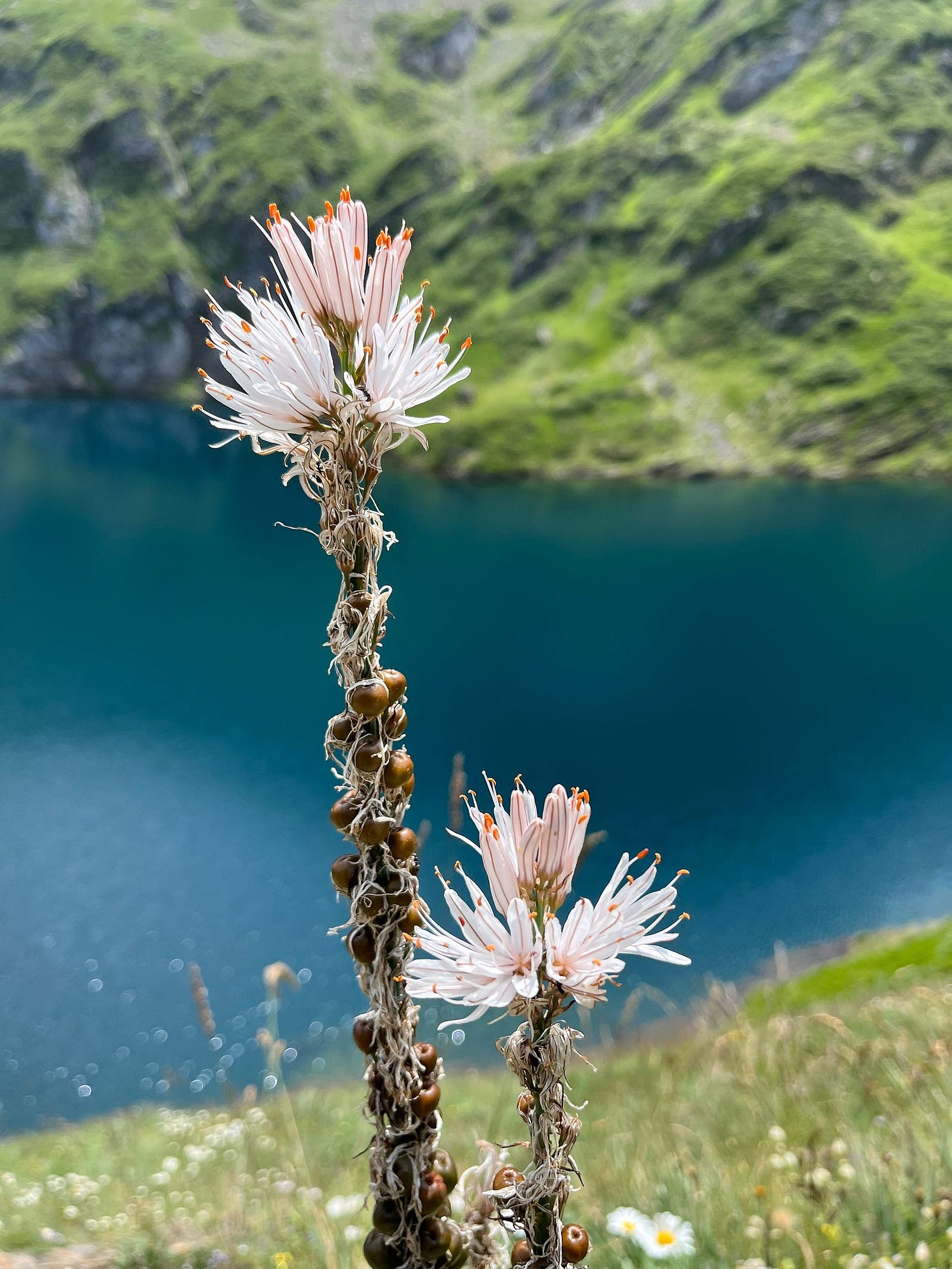
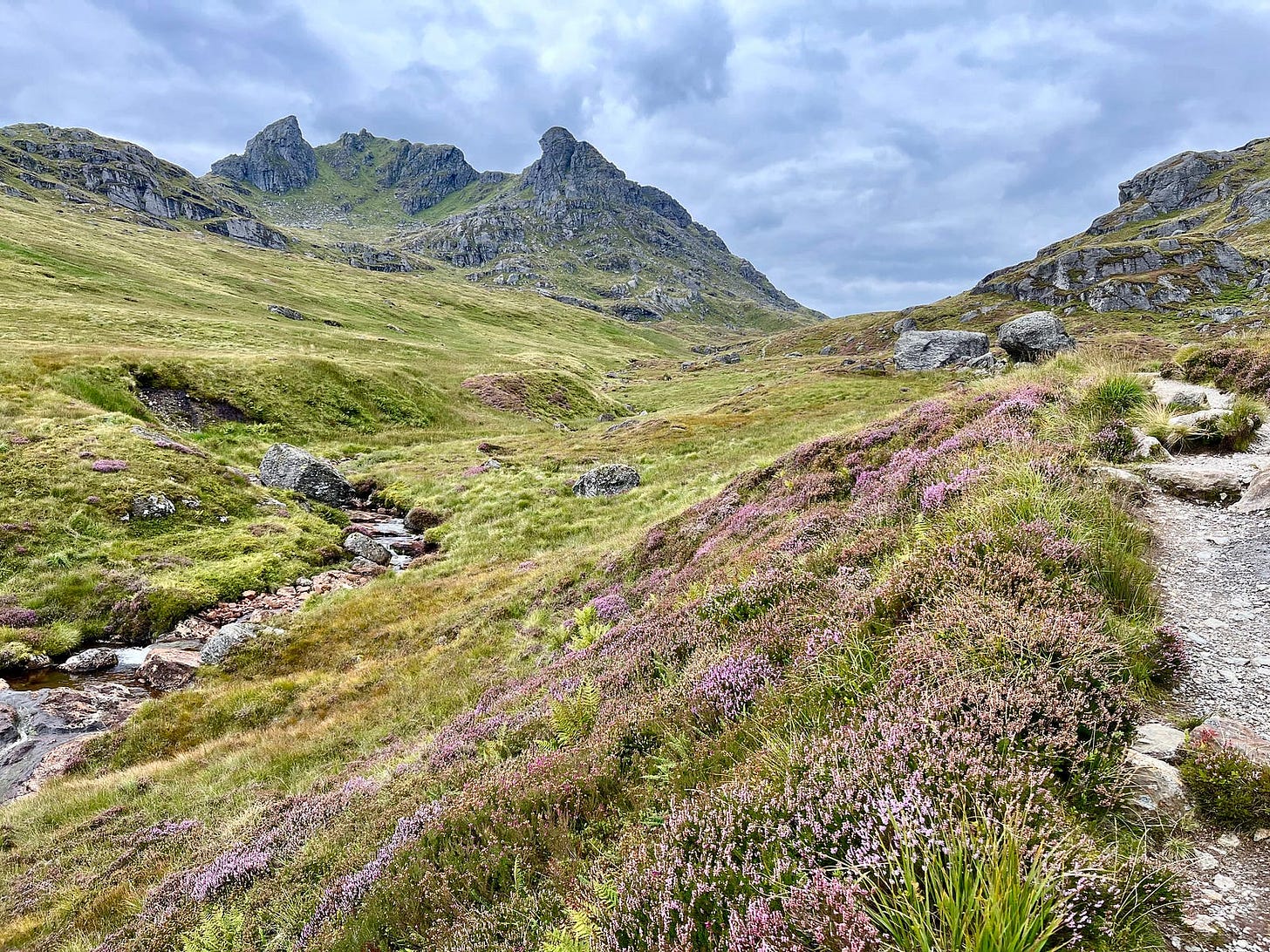
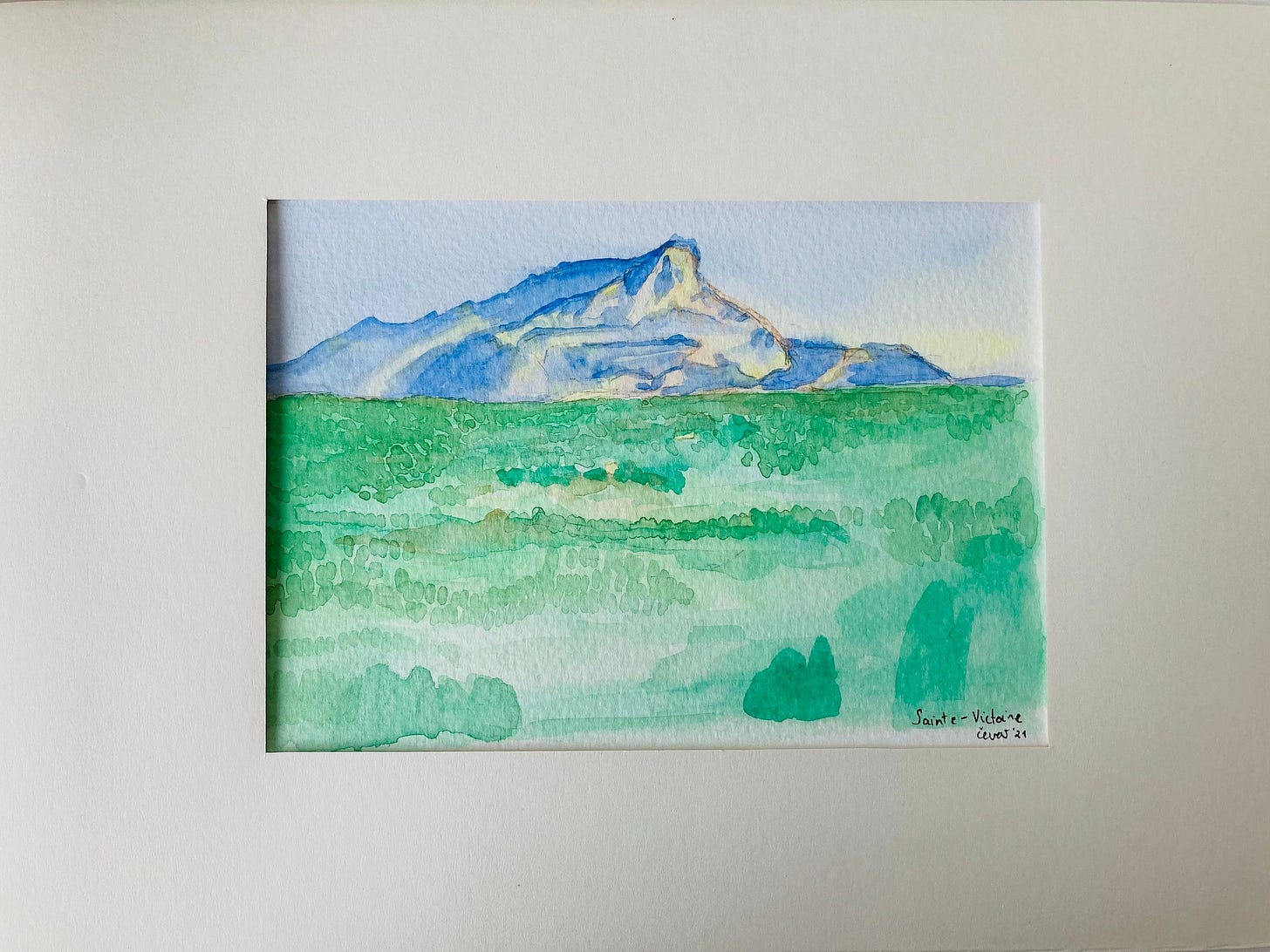

🔄